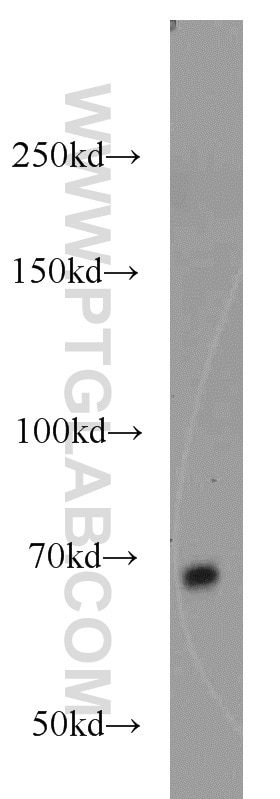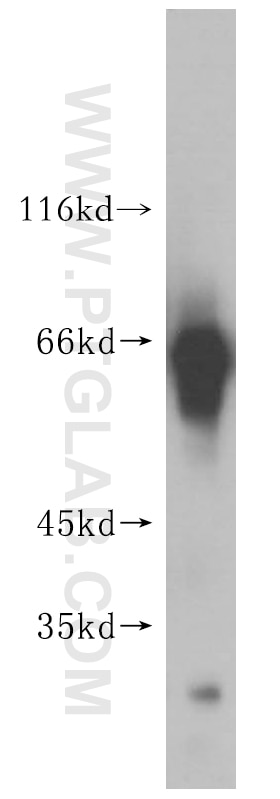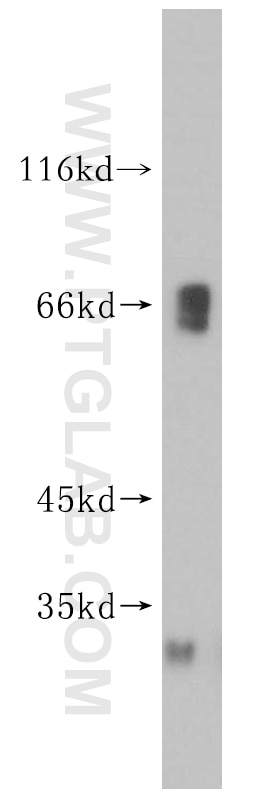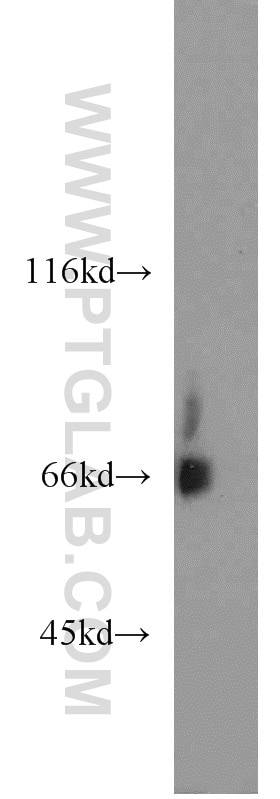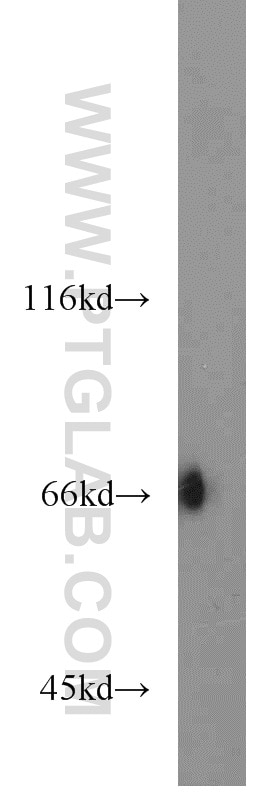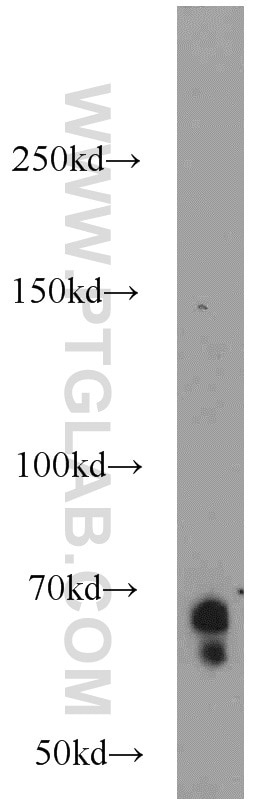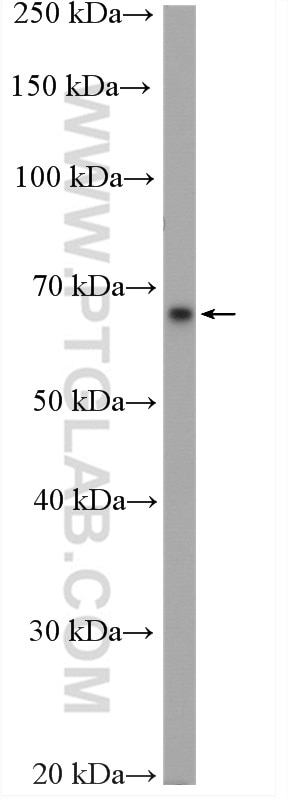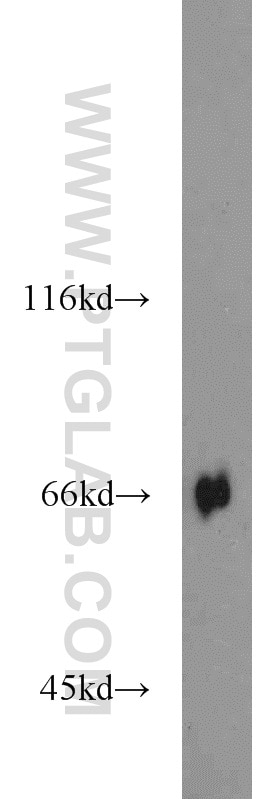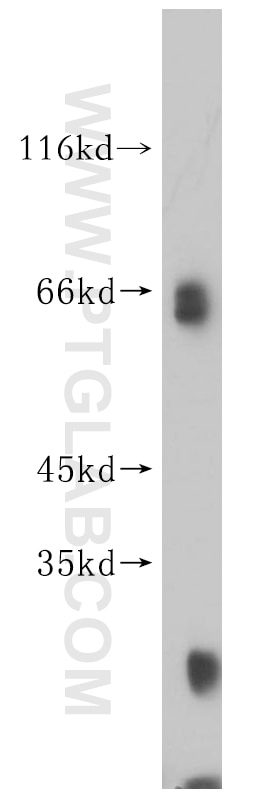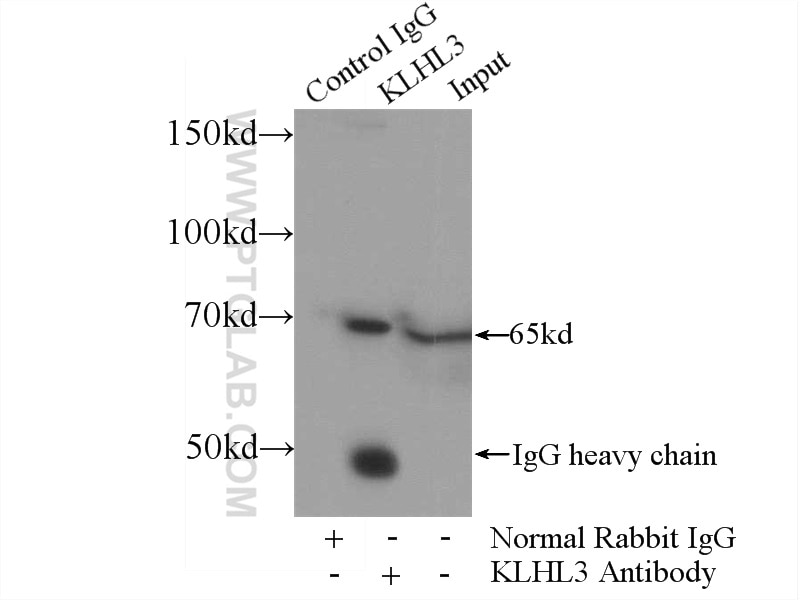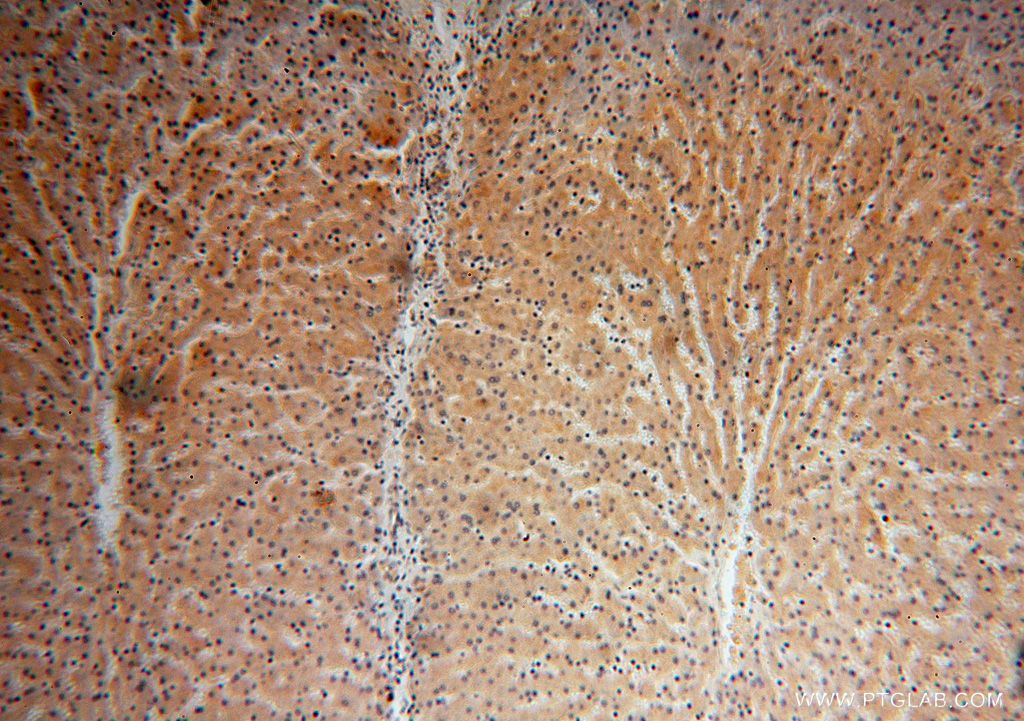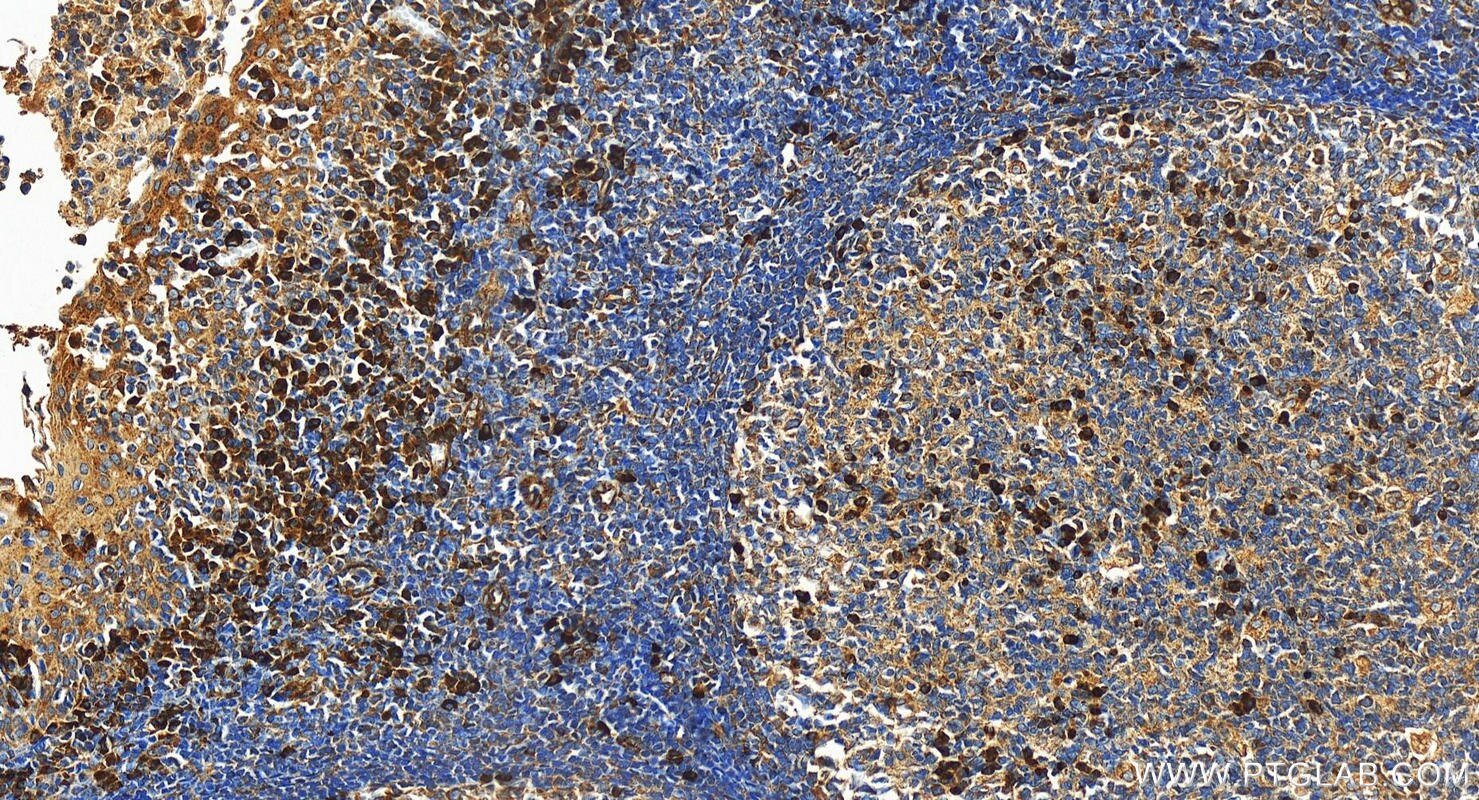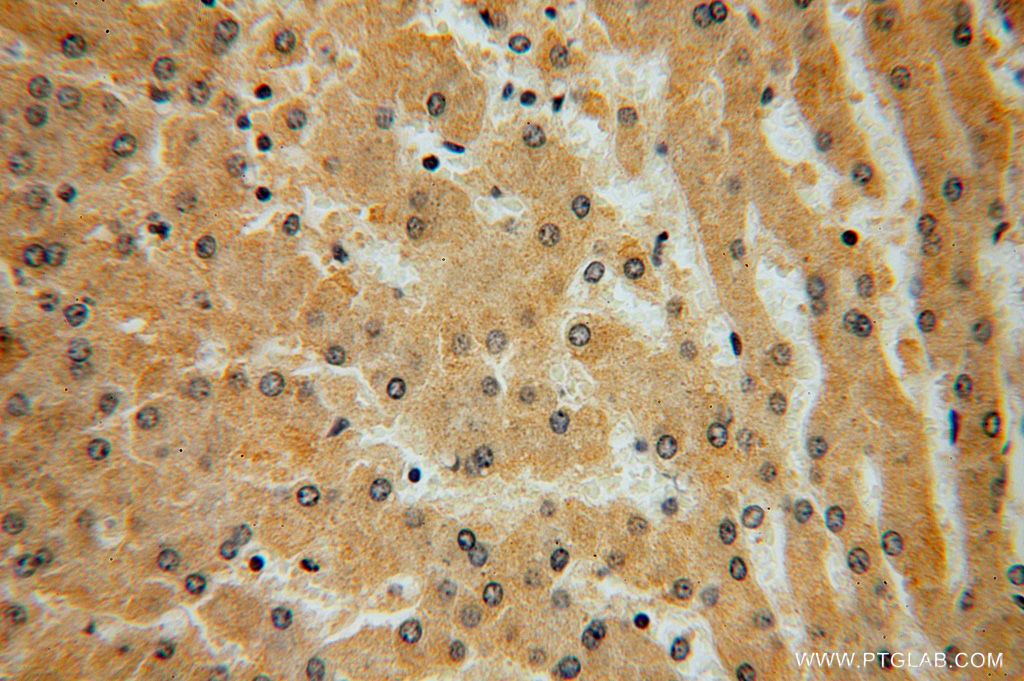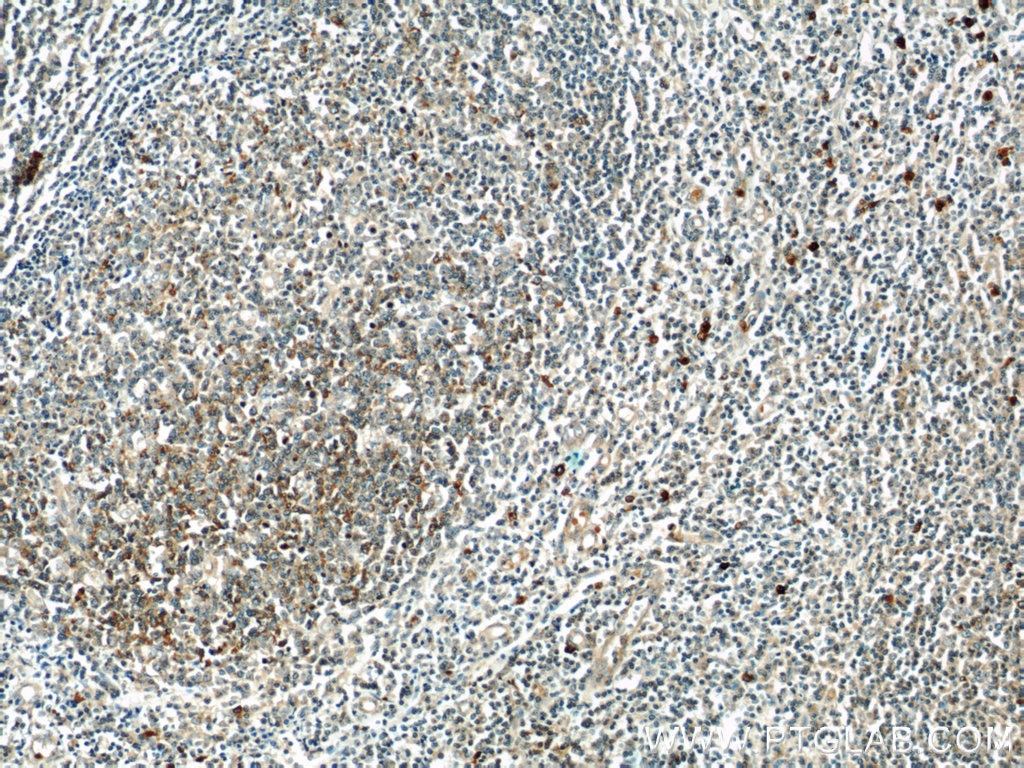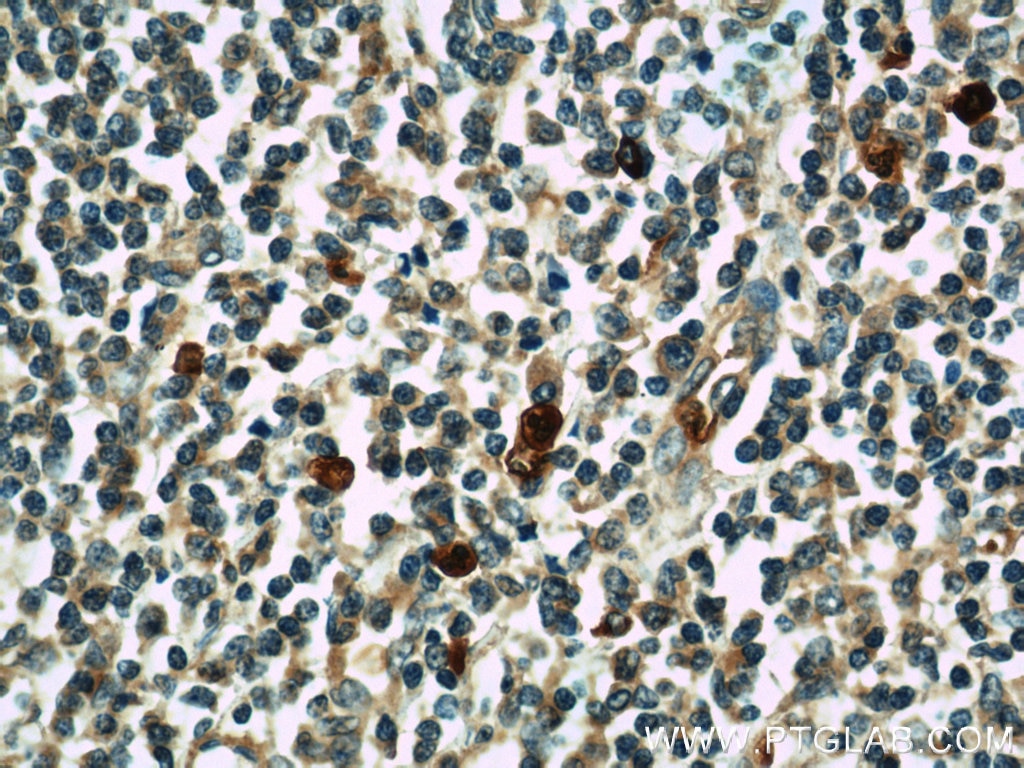Tested Applications
| Positive WB detected in | HepG2 cells, mouse liver tissue, Jurkat cells, rat liver tissue, human liver tissue, mouse thymus tissue, HL-60 cells, mouse pancreas tissue |
| Positive IP detected in | HepG2 cells |
| Positive IHC detected in | human tonsillitis tissue, human liver tissue Note: suggested antigen retrieval with TE buffer pH 9.0; (*) Alternatively, antigen retrieval may be performed with citrate buffer pH 6.0 |
Recommended dilution
| Application | Dilution |
|---|---|
| Western Blot (WB) | WB : 1:500-1:1000 |
| Immunoprecipitation (IP) | IP : 0.5-4.0 ug for 1.0-3.0 mg of total protein lysate |
| Immunohistochemistry (IHC) | IHC : 1:500-1:2000 |
| It is recommended that this reagent should be titrated in each testing system to obtain optimal results. | |
| Sample-dependent, Check data in validation data gallery. | |
Published Applications
| KD/KO | See 3 publications below |
| WB | See 13 publications below |
| IHC | See 2 publications below |
| IF | See 5 publications below |
| IP | See 1 publications below |
Product Information
16951-1-AP targets KLHL3 in WB, IHC, IF, IP, ELISA applications and shows reactivity with human, mouse, rat samples.
| Tested Reactivity | human, mouse, rat |
| Cited Reactivity | human, mouse |
| Host / Isotype | Rabbit / IgG |
| Class | Polyclonal |
| Type | Antibody |
| Immunogen |
CatNo: Ag10580 Product name: Recombinant human KLHL3 protein Source: e coli.-derived, PGEX-4T Tag: GST Domain: 1-301 aa of BC034035 Sequence: MEGESVKLSSQTLIQAGDDEKNQRTITVNPAHMGKAFKVMNELRSKQLLCDVMIVAEDVEIEAHRVVLAACSPYFCAMFTGDMSESKAKKIEIKDVDGQTLSKLIDYIYTAEIEVTEENVQVLLPAASLLQLMDVRQNCCDFLQSQLHPTNCLGIRAFADVHTCTDLLQQANAYAEQHFPEVMLGEEFLSLSLDQVCSLISSDKLTVSSEEKVFEAVISWINYEKETRLEHMAKLMEHVRLPLLPRDYLVQTVEEEALIKNNNTCKDFLIEAMKYHLLPLDQRLLIKNPRTKPRTPVSLPK Predict reactive species |
| Full Name | kelch-like 3 (Drosophila) |
| Calculated Molecular Weight | 65 kDa |
| Observed Molecular Weight | 65 kDa |
| GenBank Accession Number | BC034035 |
| Gene Symbol | KLHL3 |
| Gene ID (NCBI) | 26249 |
| RRID | AB_2130861 |
| Conjugate | Unconjugated |
| Form | Liquid |
| Purification Method | Antigen affinity purification |
| UNIPROT ID | Q9UH77 |
| Storage Buffer | PBS with 0.02% sodium azide and 50% glycerol, pH 7.3. |
| Storage Conditions | Store at -20°C. Stable for one year after shipment. Aliquoting is unnecessary for -20oC storage. 20ul sizes contain 0.1% BSA. |
Protocols
| Product Specific Protocols | |
|---|---|
| IHC protocol for KLHL3 antibody 16951-1-AP | Download protocol |
| IP protocol for KLHL3 antibody 16951-1-AP | Download protocol |
| WB protocol for KLHL3 antibody 16951-1-AP | Download protocol |
| Standard Protocols | |
|---|---|
| Click here to view our Standard Protocols |
Publications
| Species | Application | Title |
|---|---|---|
Nat Genet KLHL3 mutations cause familial hyperkalemic hypertension by impairing ion transport in the distal nephron. | ||
Cell Death Differ A viral interferon regulatory factor degrades RNA-binding protein hnRNP Q1 to enhance aerobic glycolysis via recruiting E3 ubiquitin ligase KLHL3 and decaying GDPD1 mRNA. | ||
J Am Soc Nephrol Combined Kelch-Like 3 and Cullin 3 Degradation is a Central Mechanism in Familial Hyperkalemic Hypertension in Mice. | ||
J Am Soc Nephrol Kelch-Like Protein 2 Mediates Angiotensin II-With No Lysine 3 Signaling in the Regulation of Vascular Tonus. | ||
J Am Soc Nephrol Renal COP9 Signalosome Deficiency Alters CUL3-KLHL3-WNK Signaling Pathway. | ||
Hum Mol Genet Impaired degradation of WNK1 and WNK4 kinases causes PHAII in mutant KLHL3 knock-in mice. |

